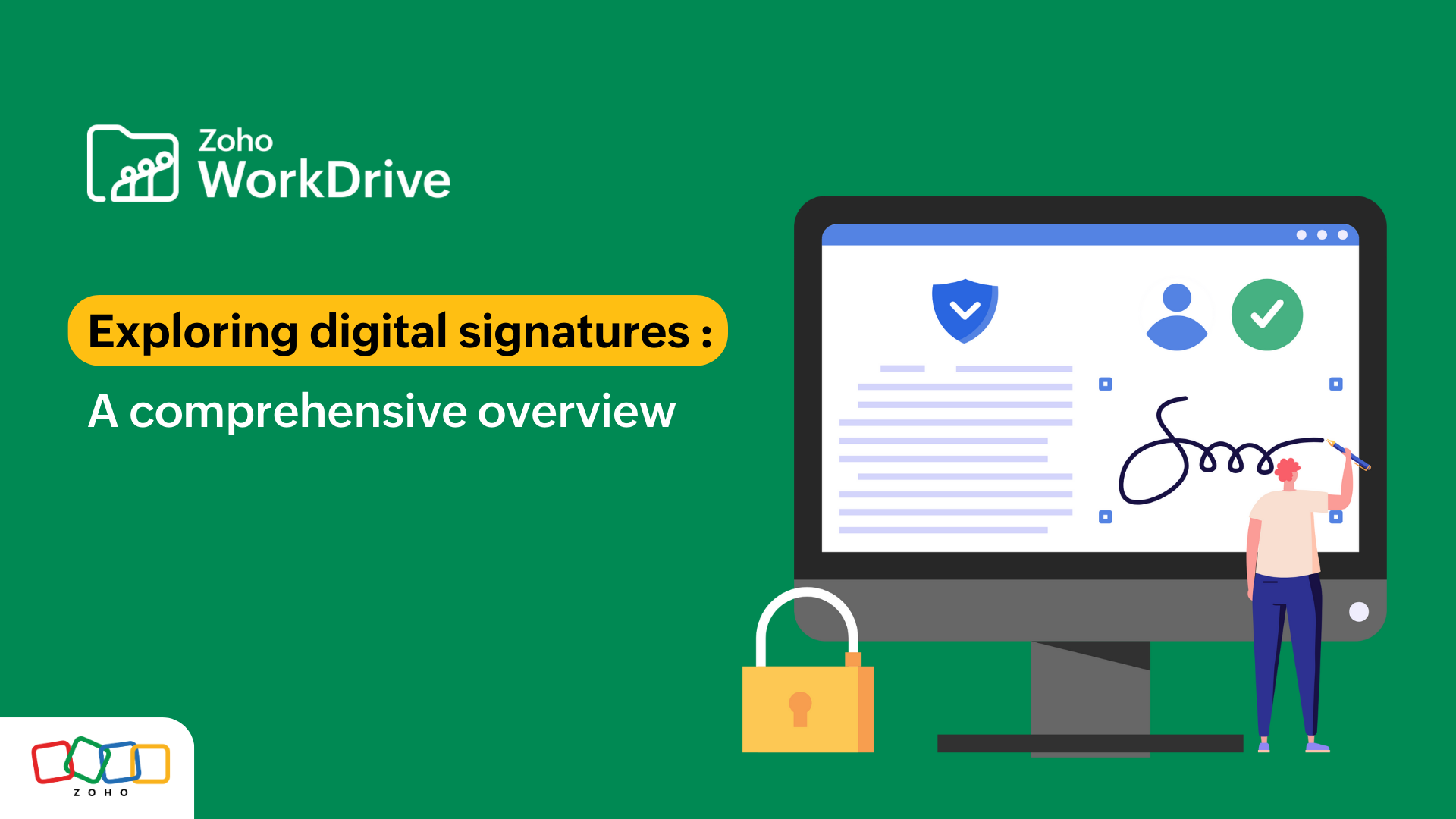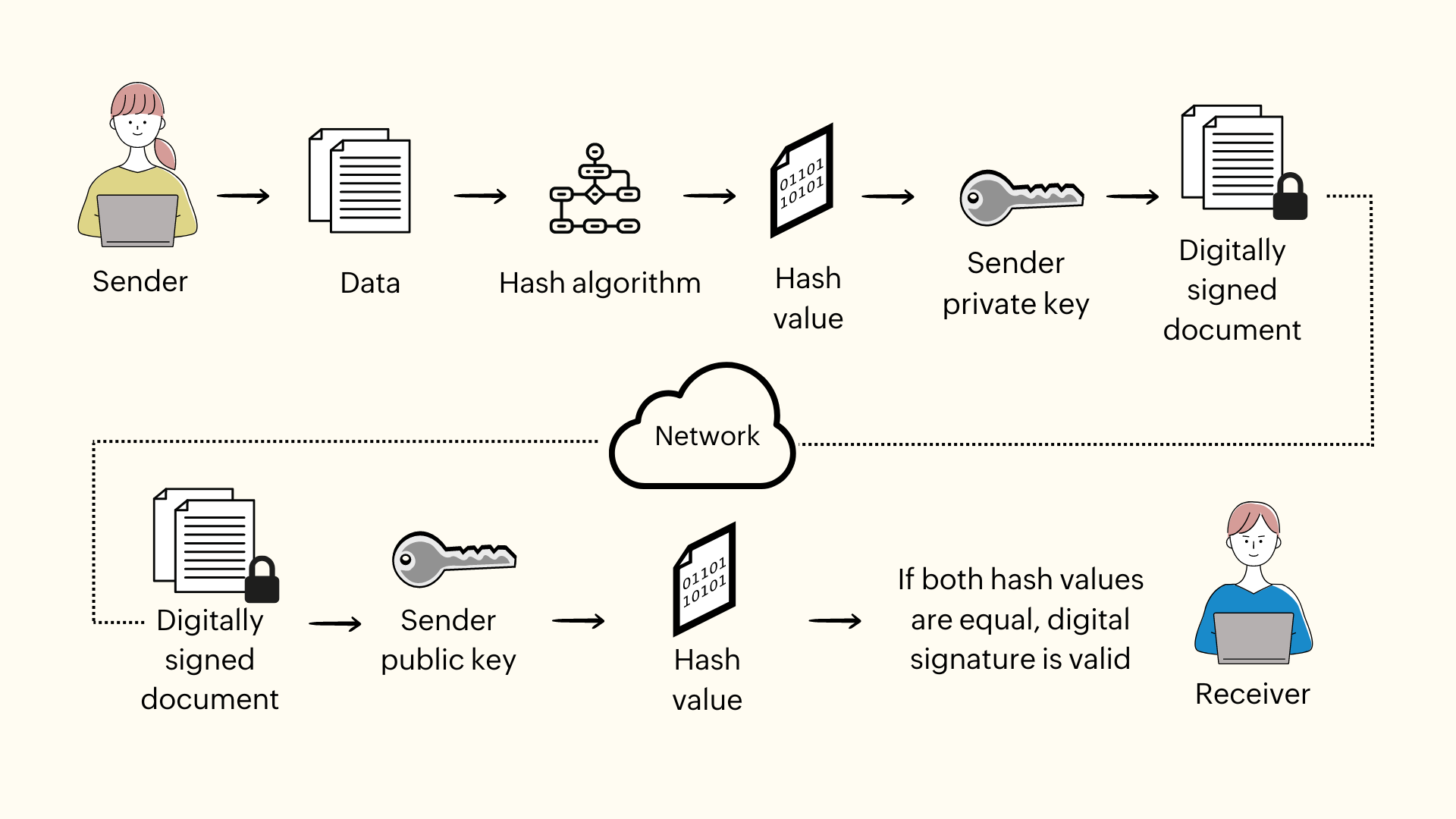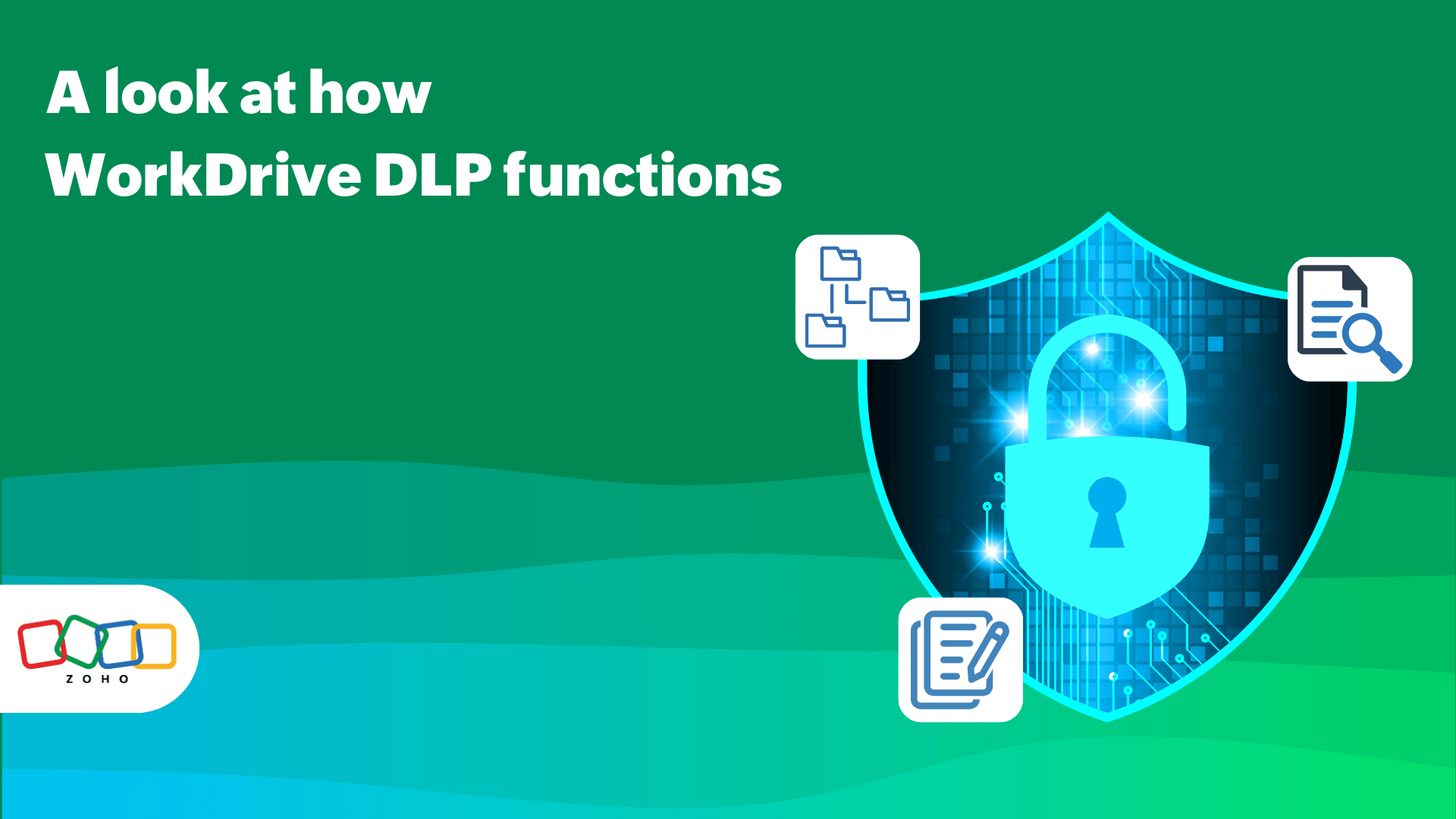Everything you need to know about digital signatures
- Last Updated : December 13, 2023
- 4.5K Views
- 5 Min Read

Over the years, parties have employed various methods to authenticate agreements between them—from wax seals and witness testimonies to fingerprints and handwritten signatures.
Today, individuals and businesses use digital tools, such as eSignatures and digital signatures to authenticate agreements. These tools give signatories the flexibility to execute documents from anywhere in the world. They have become an integral part of business transactions because of the advanced technology and multi-level security controls they employ.
In this blog post, we'll explore the concept of digital signatures and how their adoption can bring significant benefits to businesses.
What is a digital signature?
A digital signature is like a virtual fingerprint you can put on a digital document or message to confirm its authenticity, integrity, and origin.
This signature ensures the document has not been altered or tampered with while in transit between the sender and receiver.
How is a digital signature different from an eSignature?
Electronic signatures and digital signatures are commonly mixed up, though they are distinct. The former can be seen as an improved version of traditional paper-based signatures. An eSignature is when a person adds the image of their handwritten signature, or a message expressing agreement, to a document.
Digital signatures are a type of electronic signature. They are encrypted, and verify the authenticity and identity of the signer using a digital certificate, providing a higher level of security and legal validity.
How does a digital signature work?
Let's consider a scenario. Sofia is a small business owner who is currently in need of financial assistance. She decides to approach a local bank for a business loan, which requires her to provide personal and financial information, and of course, digitally sign the loan application.
In general, a digital signature uses a mathematical algorithm to generate a public key and a private key. The private key is kept secret, while the public key is shared with others. When Sofia signs the document, a cryptographic hash algorithm generates a unique hash value (a fixed-length string of numbers and letters) for her document's content. This hash value is then signed using Sofia's private key to form the digital signature.

The loan application document, along with the digital signature, is sent to the recipient (bank). Now, the receiver verifies the digital signature using the sender's public key. The recipient recomputes the hash value from the received document and compares it to the hash value extracted from the digital signature. If the hash values are equal, the digital signature is valid, and it is determined that the document has not been tampered with or altered.
How digital signatures can be beneficial to individuals and businesses?
Saves time and money:
Consider the workforce required to obtain and process paper-based signatures. Someone must prepare the documents for signature, and then scan and send them to the involved parties for signing. Once the documents are executed, additional manpower is required for verification, processing, and archiving. Meanwhile, a single digital signature solution can eliminate paperwork and costs by streamlining the signing process with documents being digitally sent, signed, and stored. As a result, digital signature tools are not just cost-effective—they also improve productivity.
Improves business workflows:
A digital signature enables users to seamlessly send documents for signing to multiple recipients, irrespective of geographical location. Users can define the signing order, set reminders, and track the status of the document, enabling a smoother signing process with faster turn-arounds.
Increases security:
Businesses can leverage digital signatures to sign agreements and contracts in a more secure and reliable way. The cryptographic techniques employed by digital signatures validate the authenticity and integrity of signed data for end-to-end security. This eliminates the fear of documents being forged or tampered with. Additionally, audit trails within digital signature tools can keep you informed about activity and document status.
Promotes sustainability:
By opting for digital solutions, companies not only position themselves to contribute to the well-being of the planet, but also reduce costs and build trust among stakeholders and customers.
Digital signatures in the Zoho ecosystem:
Zoho Sign is a complete digital signature solution for any type of business, which helps you collect signatures, create personalized templates, and configure workflows. Plus, it integrates seamlessly with other business apps.
Zoho Sign uses AES-256 encryption at rest and SSL/TLS encryption while in transit. Multi-factor authentication and blockchain timestamping act as an extra layer of security throughout the document signing process. Any documents signed through Zoho Sign are legally binding and adhere to the regulations of the ESIGN ACT, UETA, EIDAS, and other relevant international laws.
Additionally, Zoho WorkDrive's integration with Zoho Sign allows users to import, edit, and sync documents from WorkDrive and back them up on the cloud. Simply pick a document stored in WorkDrive, define the signing order for your recipients, and send your document for signing.
With Zoho Writer, you can draft and collaborate on documents, and send them out for signatures directly from the app. For instance, teams can draft an NDA document, add customers as signers, insert signature fields, and send the finished NDA for signing. You can also track the status of your documents right from Writer.
Use of digital signatures across business functions:
Let's take a look at how digital signatures can be used across various businesses and departments.
Onboarding documentation:
Digital signatures enable human resources teams to expedite their onboarding processes. Human resources professionals can effortlessly obtain signatures on employment contracts and other necessary onboarding documents from new hires, regardless of their geographical location. This helps HR teams build a strong talent pool and promote a smooth onboarding experience.
Sales agreements:
Companies can use digital signatures to sign sales agreements with different stakeholders, no matter where they are located. Digital signature tools can be integrated with CRM tools to create seamless transaction workflows. A digital signature is just as valid and enforceable as handwritten signatures.
Legal contracts:
Implementing a secure document management system and a reliable digital signature tool can help legal teams reduce paperwork and optimize their workflows. With these tools in place, legal professionals can create and manage legal documents and contracts efficiently, and easily send them to clients, co-counsel, or other stakeholders for signing.
The application of digital signatures is not limited to any particular industry. From handling banking agreements to helping maintain compliance in healthcare, and reducing paperwork for the government sector, digital signatures have the power to revolutionize processes across various industries, making them a crucial tool in today's digital world.


